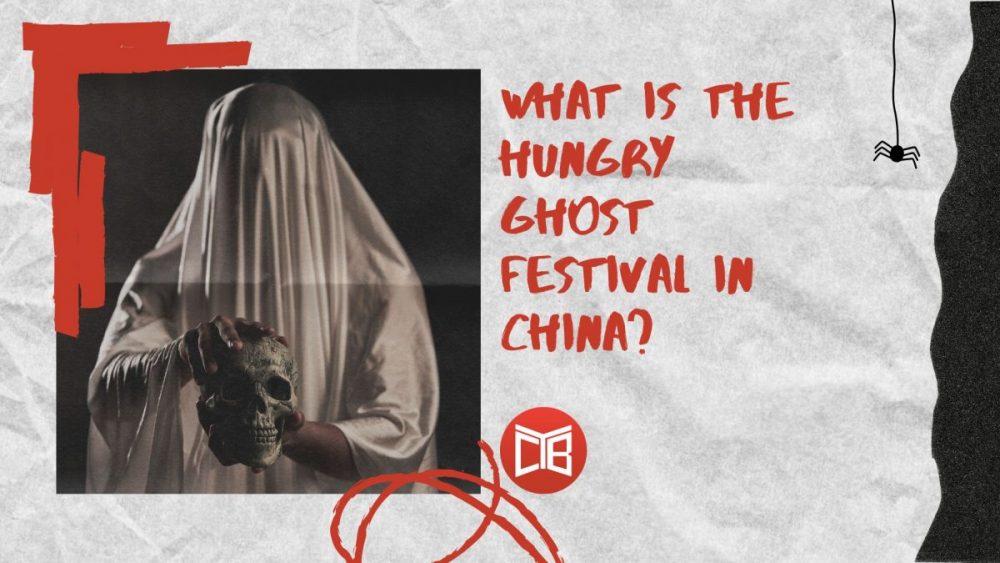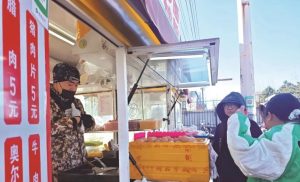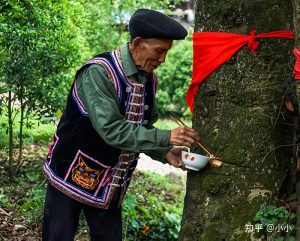
Hungry Ghost Festival, also known as Ghost Festival or Zhongyuan Festival, is a traditional Chinese festival. It falls on the 15th day of the seventh month in the Chinese lunisolar calendar, which is usually in August or September. Hungry Ghost Festival is a time for remembrance and ritual, as the spirits of the deceased are honored and cared for during a month-long celebration. Hungry Ghost Festival is a superstitious time in Chinese culture, so there are specific dos and don’ts that are observed during this period.
When is Hungry Ghost Festival this year?
The Hungry Ghost Festival occurs on the 15th day of the seventh lunar month. In 2024, Hungry Ghost Festival will be celebrated on Sunday 18th August. In the Chinese lunisolar calendar, the dates change each year compared to the Gregorian calendar. Here are the dates for the Hungry Ghost Festival in the coming years:
Hungry Ghost Festival in 2025: Saturday 6th September
Hungry Ghost Festival in 2026: Thursday 27th August
Hungry Ghost Festival in 2027: Monday 16th August
Hungry Ghost Festival in 2028: Sunday 3rd September
Hungry Ghost Festival in 2029: Friday 24th August
Hungry Ghost Festival in 2030: Tuesday 13th August
How long is Hungry Ghost Festival?
Hungry Ghost Festival is held on the 15th day of the seventh month in the Chinese lunisolar calendar. However, celebrations take place throughout the whole of the month, which is known as known as Ghost Month (鬼月 – guǐ yuè).
Where is Hungry Ghost Festival celebrated?
Hungry Ghost Festival is celebrated in various regions and countries with large Chinese communities. As well as mainland China, Hungry Ghost Festival is also widely celebrated in Singapore, Hong Kong, Taiwan, Malaysia, Thailand, Indonesia and Vietnam.
The history of Hungry Ghost Festival in China
Hungry Ghost Festival is celebrated annually to honor and appease restless spirits, also known as hungry ghosts, in Chinese culture. The origins of Hungry Ghost Festival are rooted in Buddhist and Taoist traditions and the celebrations take place throughout Ghost Month (the seventh month in the Chinese lunisolar calendar). It is thought that the gates to the underworld open during the seventh lunar month, allowing spirits to wander the human world. These spirits, often ancestors or other deceased individuals, have not found peace or have been neglected by their living relatives. Burdened with unfilled desires, hunger and thirst, the spirits alleviate their suffering with the rituals and offerings during Ghost Month.
Some people also believe that the gates of heaven open during this time, allowing them to worship their heavenly ancestors. Another tradition involves King Yama, the King of Hell, who opens the gates to allow ghosts to enjoy offerings and sacrifices. The gates close on the last day of Ghost Month, sending unappeased ghosts back to hell until next year.
How do people celebrate Hungry Ghost Festival?
Hungry Ghost Festival is celebrated with several customs and traditions to honor the spirits of the deceased. These are the key ways in which Hungry Ghost Festival is celebrated today:
- Food and drink offerings. Traditionally, food items with high water content were offered to spirits so they could consume some of the offering before it turned to ash. However, in modern times, all sorts of culinary offerings such as meat, fruit, vegetables, green tea and rice wine are offered for the hungry ghosts.
- Burning joss paper. Elaborate paper offerings are burnt to appease spirits during Ghost Month. These include soul permit passes to allow easy passage to the living world, passes to help spirits go on holiday, clothing passes for new clothes and mantra wheel paper to help ghosts let go of grievances.
- Floating river lanterns. Also called lotus lanterns, floating river lanterns are released to help spirits that are trapped in the living world return to the spirit realm. The release of floating river lanterns symbolizes the cleansing of bad luck. Mischievous spirits are thought to linger in water waiting for their victims!
- Incense burning. The rising smoke of incense burning carries prayers and messages to the spirits and invites them to sample the food and drink offerings. It is thought that the burning of incense creates a bridge between the living and dead worlds.
- Religious ceremonies. Taoist and Buddhist ceremonies are held to honor the deceased. Priests chant and perform rituals to acknowledge, honor and free the spirits from their suffering.
- Ancestor worship. Many families visit the graves of their ancestors to clean the tombstones and make offerings to the deceased.
- Community activities. Some communities organize street performances, opera shows and community feasts to celebrate Hungry Ghost Festival. Food and drink are first offered to the spirits before being consumed by participants.
- Decorations and symbolism. Red lanterns are often hung during Ghost Month to ward off evil spirits.
Dos and don’ts during Hungry Ghost Festival
As Hungry Ghost Festival is an inauspicious time in Chinese culture, there are some things that should be avoided during this period to prevent bad luck. These include:
- Leave your clothes hanging outside at night. As hung clothes resemble human shape, left out at night they are thought to attract spirits. The spirits may borrow your clothes or hide inside to sneak into your home when you take the laundry in the next day.
- Take the last bus or train home. Avoid the last bus or train home – the last transport is thought to carry many spirits and you could be taken away by a ghost driver.
- Stand too close to a wall. Spirits are thought to cling to walls as they are cooler during the hot summer months. Standing too close makes you easy prey for scheming spirits.
- Take pictures at night. Avoid taking pictures at night during Ghost Month, otherwise you may end up with an unsuspecting ghostly photobomber!
- Point your slippers towards your bed at night. Slippers are thought to act as compasses for ghosts that lead the way to human victims. Point your slippers away from where you are sleeping at night.
- Put your hand on someone’s shoulder. It is thought that a protective fire energy we all have on our shoulders is extinguished when someone puts their hand on our shoulder.
- Whistle or sing at night. Spirits may treat your tune as an invitation to interact with you.
- Shave your legs. There is an old Chinese proverb that states that one leg hair can fend off three hungry ghosts.
- Swimming at night. It is said that unfulfilled spirits like to hide in bodies of water to find a victim to replace them. Swimming at night should therefore be avoided, particularly in coastal areas.
- Start a new business or get married. It is thought that marriages started during Ghost Month are destined to fail. Likewise for new businesses, an inauspicious start is not conducive to successful business!
- Open your umbrellas indoors. Spirits can hide in closed umbrellas, so wait until you are outside of the home before opening them – otherwise spirits could become trapped in your home!
- Wear high heels. Having your heels raised off the floor is thought to welcome spirits from the underworld, so should be avoided during Hungry Ghost Festival.
Is Hungry Ghost Festival in China the same as Halloween?
While Hungry Ghost Festival in China and Halloween in Western cultures share some similarities, such as spirits and the supernatural, they are different celebrations. Key differences are seen in the origins, practices and cultural significance of the two festivals – as well as the dates on which they are celebrated!
Key Chinese vocabulary for Hungry Ghost Festival
Here’s our top 10 key Chinese vocabulary terms for Hungry Ghost Festival:
- 中元节 (zhōng yuán jié) – Hungry Ghost Festival
- 鬼月 (guǐ yuè) – Ghost Month
- 烧纸钱 (shāo zhǐqián) – burning joss paper (paper money for the deceased)
- 冥纸 (míng zhǐ) – spirit money (another term for joss paper)
- 放河灯 (fàng hé dēng) – floating river lanterns (a ritual to guide spirits)
- 供品 (gòngpǐn) – offerings (items such as food and drink for the spirits)
- 孤魂野鬼 (gū hún yě guǐ) – lonely spirits and wild ghosts (wandering spirits without descendants to honor them)
- 祭祖 (jì zǔ) – ancestor worship
- 鬼门 (guǐ mén) – ghost gate (the gate to the underworld)
- 施食 (shīshí) – food offering (ritual of offering food to the spirits)
Conclusion
Hungry Ghost Festival holds great cultural and spiritual significance in Chinese culture. During the month-long celebration of Ghost Month, communities across China come together to honor departed relatives and ward off evil spirits. While some customs seem superstitious, they reflect a desire to maintain harmony between the living and dead realms that is prevalent in Chinese culture.
Why not learn how summer solstice is celebrated in China?
FAQ
- Why is Hungry Ghost Festival important in Chinese culture? Hungry Ghost Festival, also known as Zhongyuan Festival, is a traditional annual Chinese festival held to honor deceased ancestors and appease unfulfilled spirits.
- When is Hungry Ghost Festival? Hungry Ghost Festival’s date varies each year, usually falling in August or September. In 2024, it will be celebrated on Sunday 18th
- Where is Hungry Ghost Festival celebrated? Hungry Ghost Festival is widely observed in countries with significant Chinese communities, including mainland China, Singapore, Hong Kong, Taiwan, Malaysia, Thailand, Indonesia and Vietnam.
- How is Hungry Ghost Festival celebrated in China? Hungry Ghost Festival is marked by various rituals such as offering food and drink to spirits, burning joss paper for the deceased, releasing floating river lanterns and conducting religious ceremonies.
- Is Hungry Ghost Festival the same as Halloween? While both festivals involve themes of spirits and the supernatural, Hungry Ghost Festival and Halloween are different celebrations.
Author
Sean studied Chinese and Spanish at University of Leeds and founded The Chairman’s Bao alongside Tom Reid in his final year of study in 2015. Current Managing Director of The Chairman’s Bao, he has overseen the company’s growth from university bedroom concept to an international force in the EdTech industry with over 200,000 individual users and over 400 global partner institutions. Sean also launched Newsdle alongside Tom Reid and Oliver Leach in 2021, for students and teachers of Spanish and French. In his spare time, Sean is still a keen language learner and runner. He also sits on the Board of charity Leeds Irish Health and Homes in the UK.
























